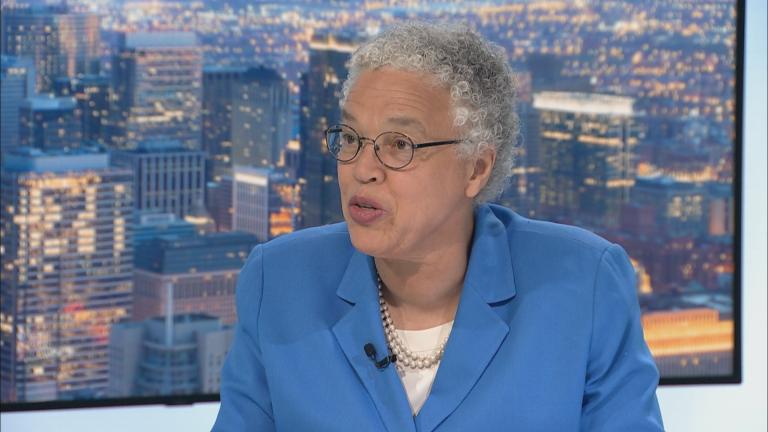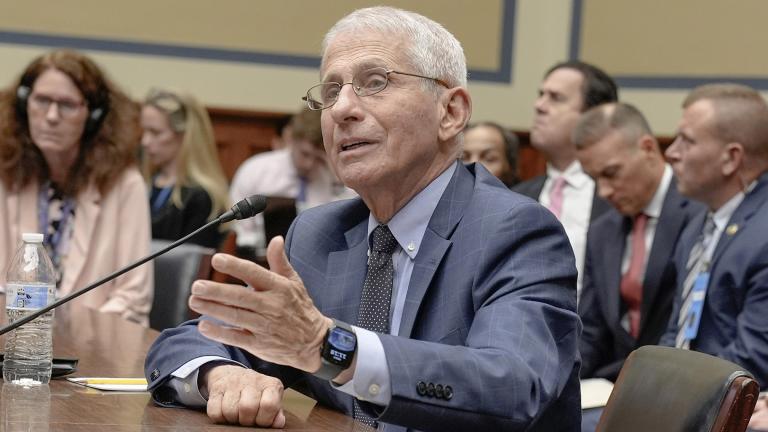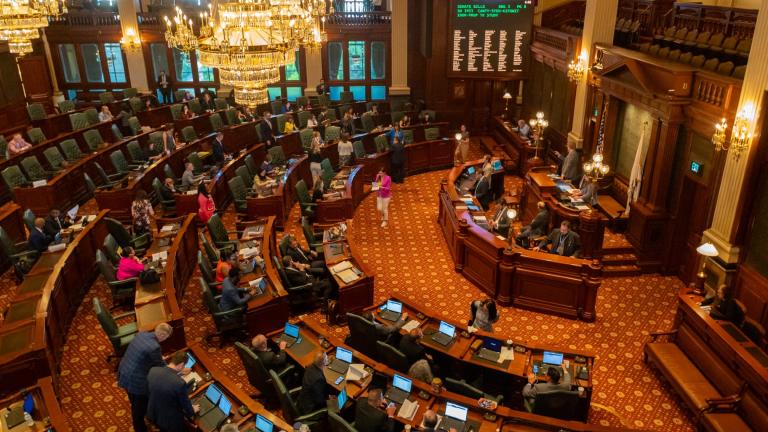More than half of Chicago’s population is now fully vaccinated against COVID-19, according to city officials, but vaccination rates among Black and Latino residents are lagging.
According to city data, nearly 62% of white Chicagoans are fully vaccinated, compared to about 38% of Black Chicagoans. With the more transmissible delta variant driving a surge in new infections, some city governments, including New York and Chicago, are imposing vaccine requirements, while employers are requiring vaccines for workers and customers. The hope is that these policies will motivate those who are hesitant to get the vaccine to roll up their sleeves, but some worry it will have the unintended consequence of shutting residents out of services and employment.
Cook County Health Chief Medical Officer Dr. Claudia Fegan says she supports vaccine mandates for public-facing workers, particularly those in the health care industry.
“Everyone, when they’re sick, are in a vulnerable position and they don’t expect us to allow them to be placed at risk by having someone take care of them who could possibly be infected with COVID,” Fegan said. “So I think it’s an obligation we have to the people we take care of and to each other.”
Vaccine requirements to enter businesses like bars and restaurants, will spur those with softer objections to go ahead and get the jab, Fegan said.
“One of the hardest groups for us to get vaccinated right now is our young folks,” she said. “I noticed that in Chicago as we saw music venues and bars and restaurants start to require vaccines, a lot of 20-something and 30-somethings said, ‘OK, too much of an inconvenience now’ and they are getting vaccinated. So I think that these requirements for vaccines and inconveniencing folks who want to do certain things will help, because these are folks who don’t have hard reasons why they won’t get vaccinated. They just haven’t felt a need prior to this.”
Karen Freeman-Wilson, president and CEO of the Chicago Urban League, says that while accessibility still remains an issue for some Black Chicagoans, she believes that misinformation is at the heart of many people’s hesitancy.
“There was so much misinformation thrown at the public initially it is hard to cut through with the accurate information,” she said. “And then the fact that it’s a changing virus also, I think, attributes to the hesitancy.”
But Freeman-Wilson says that while mandates might create barriers for those reluctant to get vaccinated, the health and safety of the community must come first.
“I think whenever you have mandates you have to think about why they’re being placed and the health and safety factor here far outweighs the concern about shutting people out of creating a barrier,” Freeman-Wilson said. “But I do think we should keep data, and if we look at the statistics and come up with innovative ways to encourage people — in spite of their hesitancy or their refusal to get vaccinated — that could counter any barrier that is created by mandates. But we absolutely support barriers because our health depends on it.”
Fegan says relationships with trusted community members are key to combating misinformation.
“When I have a patient who I have an ongoing relationship with and we’ve forged that relationship over time, then it’s easier for me to explain to them what’s fact and what’s fiction,” Fegan said. “But the other necessity is for patients or people who do not have a relationship with a physician, where can they get that information? So, meeting folks and talking to folks in the community, meeting them in places that they’re familiar and comfortable with, where we can have frank and honest discussions are, it’s important. People need to have that one-on-one communication and not just see it on print or on the internet or on television.”
Freeman-Wilson says she thinks the city and state governments are on the right track by encouraging vaccinations in the Black community, but more can always be done.
“I’ve seen both city and state encourage vaccines through advertising, through social media and other things,” she said. “I think that the idea that they will go door-to-door is something that is a possibility and something I certainly support … and I also think meeting people where they are — taking mobile vaccine trucks to church, to liquor stores, to other social settings. I think that when you do that, you have an opportunity to get people vaccinated because they don’t then have the excuse that it’s too hard or it’s not convenient.”








